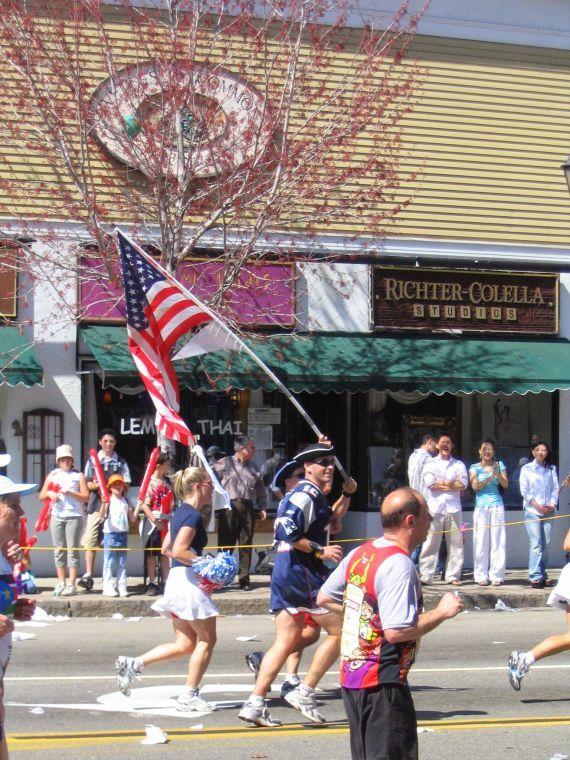Boston Marathon bombing: What the tragedy means a year later to Bostonians
April 15, 2014
Editor’s note: The author would like to dedicate this column to Martin Richard, Krystle Campbell, Lu Lingzi and Sean Collier. In respect for the memories of those who died, the names of the bombing suspects will not be mentioned here.
It is ultimately impossible to put into words what the Boston Marathon means to the people of Boston and New England.
Nevertheless, as someone who calls Boston home, I will try to articulate what Bostonians felt one year ago today when bombs went off on Boylston Street and stunned the 117th Boston Marathon.
I grew up in Concord, Mass., a suburb about 30 minutes northwest of Boston. Concord is also the site of the Battle of Concord and the “shot heard round the world,” the events that began the American Revolution. These events inspired the civic holiday of Patriots’ Day, also known as “Marathon Monday.” Patriots’ Day always falls on the third Monday in April and the Boston Marathon always falls on Patriots’ Day.
There is no public school in Massachusetts on Patriots’ Day, and as a result, hundreds of thousands of people gather along the marathon route from Hopkinton to Boston to celebrate the oldest marathon in the world.
Get The Daily Illini in your inbox!
That route will never be more packed than it will be this year.
See, it isn’t easy enough to say, “Yeah the marathon means a lot, it’s kind of like a regional holiday,” because that would not do the marathon justice. When those bombs exploded downtown, the foulest of evils was committed. There are no words to describe the places in hell reserved for bombing suspects one and two.
The last time I went to the marathon was six years ago, when I attended the Patriots’ Day Red Sox-Yankees game. On Marathon Monday, the Red Sox play a home game that starts at 11 in the morning, and right as the gates empty at Fenway Park, spectators can walk two blocks to Kenmore Square to see the runners cruise through their final mile before hitting the finish line on Boylston Street.
It’s a sight to see. Red, blue, green and orange bibs zooming down Commonwealth Avenue, some runners with smiles, some with grimaces, and some with looks of extreme pain. Cheering for those runners is indiscriminate. It’s a thrill to root for the next person to come into view, regardless of race, age, gender or ability. You want them to do well, you want them to finish the race and receive their medal. Most importantly, you want them to celebrate this awesome accomplishment with their families, friends and fellow racers.
I remember riding the subway home from the Sox game that day and seeing a runner with his bib and shorts still on, a medal around his neck and a shiny blanket over his shoulders. He was a hero to a 13-year-old who has never had much interest in distance running. And it didn’t matter how he placed in the race.
Lots of clichés have been used to describe the attack, the response and the marathon itself. I’ve been to the marathon several times. Part of the pain involved with the bombings had to do with the fact that no sane person could imagine an assault on the marathon, because an assault on the marathon is an assault on the Boston way of life.
“Boston Strong” was a phrase that was coined only after the attack on the marathon, but it’s something that existed all along. Boston Strong is the strength Bostonians showed me while cheering for complete strangers in Kenmore Square six years ago. Boston Strong is the strength displayed in the annual $12 million contribution given to charity through marathon participants.
Boston Strong is the human spirit that will be shown in force on April 21 when 36,000 marathoners run 26.2 miles before almost a million spectators and flaunt their collective strength right in the face of an evil that will never beat us. It will never beat us because we will always outrun it.
Peter is a freshman in Media. He can be reached at [email protected]. Follow him on Twitter @pbaileywells22.







